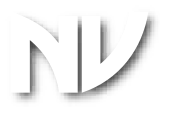The overlooked C word

From the day we are born, humans share an instinct to be curious about virtually everything. We start by gazing at the world around us, move on to pointing at things, then, as we develop speech, we begin to form questions - lots of questions! No parent will be surprised to learn that between the ages of three and five a child can ask up to 300 questions per day.
It is probably just as well that we don’t continue to seek answers at the rate of a toddler, but it is wise to preserve and to nurture some of our childlike instincts. Curiosity is one such trait that we should maintain for as long as possible, as remaining curious is one of the key factors for success (and happiness) in life. To quote Albert Einstein: ‘I have no special talents. I am only passionately curious.’
Should this instinct fade as we mature, we put ourselves at a profound disadvantage, but nevertheless it is easy to lose our appetite for curiosity. Negative phrases like ‘curiosity killed the cat’ may warn us off, but mainly it’s our blind faith in our accumulated knowledge that can make us intellectually lazy. Many of us regularly make assumptions, or are quick to judge, and hold on to our opinions as if they were gospel. Keeping an open mind is vital in order to nurture curiosity.
But it’s in the day-to-day routines of our professional lives that we are at great risk of drifting on autopilot. Harvard Business School undertook a study of over 3000 people from various companies, and discovered that a paltry 24% of employees reported feeling curious at work on a regular basis. Perhaps the fear of looking incompetent by asking questions and challenging the status quo is at the root of this statistic, but whatever the reasons the results are sobering.
In his famous bestseller ‘The 7 Habits of Highly Effective People’, Stephen Covey advises to ‘seek first to understand, then be understood’. This maxim is an excellent one to recall and is applicable in every situation where we want to further our curiosity. Consider that most salespeople - and of course we are all in sales, in a direct or indirect sense - will reverse the order in an effort to convey and convince. By way of example, contrast the aggressive estate agent trying to push every property your way, with the opposite type that asks and sincerely listens to your needs… it’s not hard to imagine who would be likely to win your business.
Checking in with both the quantity and the quality of our questions, as well as becoming a better listener, are essential tools that can help us maintain our curiosity and in turn transform our relationships. Such recommendations to listen and question well are often covered in communications training, but the danger with such simple sounding strategies is that we can have overconfidence in our current ability or dismiss the need to work on them. The truth is, such life skills require practice. A consistently great listener is a rare breed indeed. Such a person who is also equipped with a rich and working knowledge of questioning techniques, will generate both respect and opportunity from others, and will develop their ‘curiosity muscle’ in the process.
If you are still in doubt about making a commitment to be curious for life, appeal to your self-interest, as it is also considered an effective tonic for remaining young…
To quote the novelist José Saramago: ‘Old age starts where curiosity ends’.
Curious for some further reading?
Harvard Business Review ‘Why Curiosity Matters’ (article by Francesca Gino, issue September/October 2018)
A Curious Mind (by Brian Grazer and Charles Fishman, Simon Schuster 2015)
Curious (by Ian Leslie, Quercus Books 2014)
The 7 Habits of Highly Effective People (by Stephen Covey, Free Press 1989)
All resources


